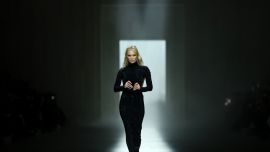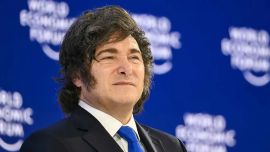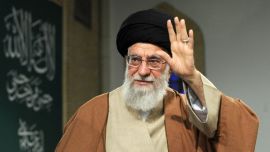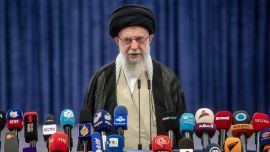Bolivia, Cuba, Iran, Venezuela, Russia, China. The ideological battle regarding Argentina’s alignment, or lack thereof, with the United States continues to reverberate through the political class as the electoral campaign kicks into high gear. And at the centre of this divide are the two major opposing forces in Argentine politics of the last 20 years: Mauricio Macri and Cristina Fernández de Kirchner. Their fixation on 20th century binary political categories seeps into every corner of public discourse, inundating the collective subjectivity of the nation with the aid of mass and social media, deepening the canyon between opposing political collectives that have taken the country hostage with their ethical debasement of the concept of ends justifying the means – i.e., polarisation as the only way to win elections and thus the recipe needed to root out the infidels and instill an ideologically influenced idea of what reality should look like. By no means is this an Argentine phenomenon, but our particular variant of the post-modern schism is, like the delta variant of the novel coronavirus, extremely aggressive.
The protagonism that both former presidents continue to attract speaks to the lack of charisma of their nominal successors, Alberto Fernández and Horacio Rodríguez Larreta, but also to this very Argentine (read: human) taste for showmanship. Both Cristina and Macri have built their political careers around their mutual clash, using every public appearance to vilify their counterpart in order to attract the hardline voters at the ideological extreme of the political rift that separates Peronists and their detractors. Under that lens, Alberto’s charlatanerie and Rodríguez Larreta’s moderation come across as bland, unseasoned and unappetising. Even though opinion poll after opinion poll illustrates society’s major concerns pertain to the economic crisis, and that polarising figures exude mighty disapproval figures, both Fernández de Kirchner and Macri retain a certain centrality that goes beyond their formal power, or lack thereof, projecting them forward into a role they very much need in order to keep the hounds at bay. Letting down the guard, for either of them, could have dangerous consequences for the wellbeing of their respective families.
There are a few self-evident concepts that disarm the ideological divide and expose it as a charade being played by groups with clearly defined self-interests. For anyone who wishes to try and look at things as impartially as possible, both Cuba and Venezuela are totalitarian states run by dictators, or dictatorial parties that use the excuse of anti-imperialism to hold on to a power that appears to be gradually slipping away. Their populations – the ones that haven’t managed to escape their devastated nations – are amongst the poorest and worst off in the region. At the same time, the United States abuses its status as global superpower, picking friends and foes on the basis of self-interest. Its blockade of Cuba has been devastating for the economy of the island nation to the point of exaggeration and in great part responds to internal political pressures, as does Washington’s tough-guy stance on Venezuela. The US has both committed and been complacent with rulers who violate human rights and uses its economic and military power to try and counter Chinese influence in the region, without a regard for its collateral effects. And of course, the United States, China, and Russia are all playing the global geopolitical vaccine contest.
Bolivia and Argentina are mere spectators in the big leagues of international relations, as is Latin America more broadly. Thus, Argentina needs to be on good terms with both the Chinese and the United States, whether Joe Biden or Donald Trump are in the Oval Office. Vladimir Putin’s vaccines are very much needed as well. And, if Argentina aspires to some semblance of progress, it needs as many markets as possible for its agricultural exports, and hopefully for its intellectual property and digital goods and service exports too.
But this debate is not about geopolitics at all, much less so about an actual alignment with Western or Eastern hegemonies, or multilateral non-alignment. Ultimately, the only thing that matters to both Cristina and Mauricio is domestic power, and so they engage in ideological populism that is simple for the masses to understand and therefore translatable into potential votes. It’s easy for Fernández de Kirchner to claim the accusations for high treason based on the Memorandum with Iran respond to an international conspiracy from ‘The Right’ to subjugate Argentina using dollar-denominated debt to punish us for resisting Western imperialistic tendencies. It’s a lot thornier to follow the money and notice that the near US$10 billion Macri’s first economy minister, Alfonso Prat-Gay, coughed up to holdout creditors helped a certain billionaire hedge funder named Paul Singer specialised in complex litigation make a windfall. It’s equally as easy for Macri and the hardliners within the Juntos por el Cambio coalition to claim President Fernández defends the governments of Venezuela and Cuba because the ruling Frente de Todos coalition has an explicit intention of trampling on personal freedoms while dragging the country towards dictatorship. It’s a lot more difficult to explain that the balancing act required to keep together the electoral coalition that is the Frente de Todos leads to ambivalent and purposefully hazy positions regarding thorny issues, particularly when it comes to the ideology of a substantial group of voters closer to Kirchnerism.
Listening to Macri and Cristina over the past several weeks with a critical ear reinforces the view that they are only out for their own personal interests. They both treated the public apparatus as an extension of their own private lives, and both added their metric tons of salt to sink the country deeper into decrepitude. Both of them and their associates made money by virtue of being in power.
There’s always hope, and the possibility that finally both of these actors begin to fade away is also around the corner. A technical tie in the midterm elections would deliver a tough electoral defeat for the Frente de Todos, which doubled down on a strategy of polarisation that is Cristina’s making. In the opposition, the gradual consolidation of Rodríguez Larreta as major powerbroker, brushing Macri off to the side, could be read as a victory of the doves over the hawks. Beginning to leave the Macri-Cristina grieta in the rearview mirror is a necessary condition for progress. Insufficient, but necessary.


















Comments